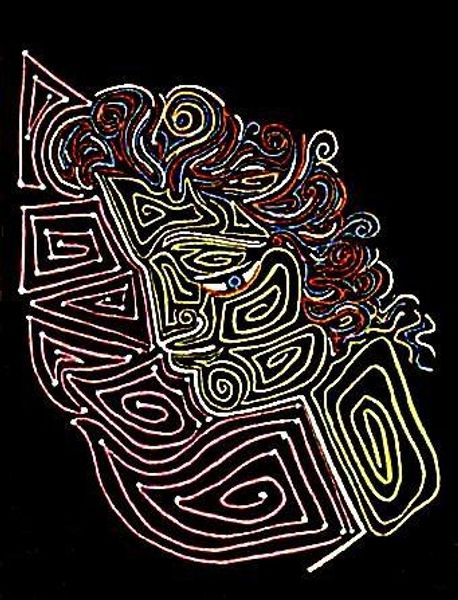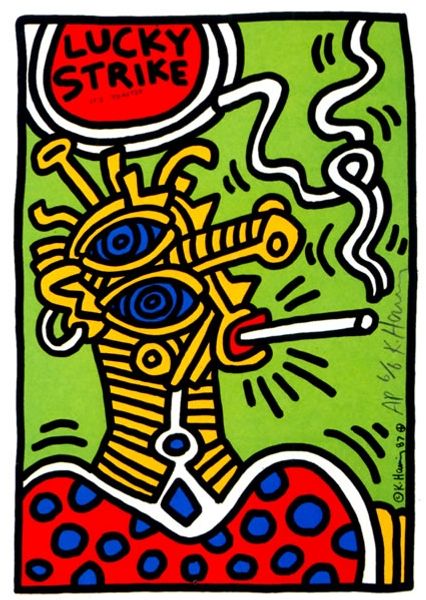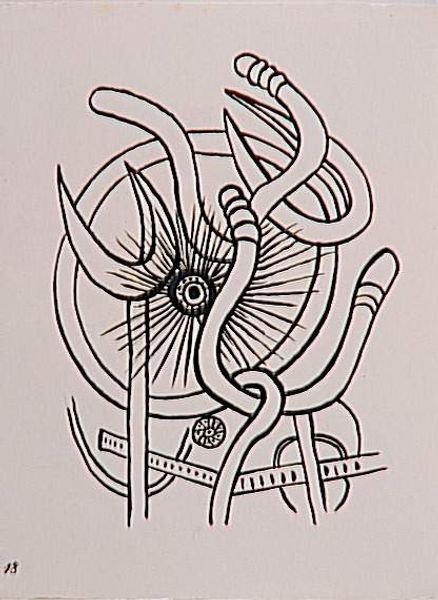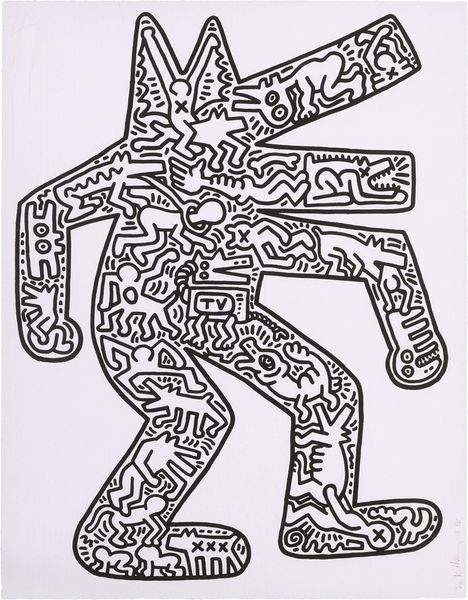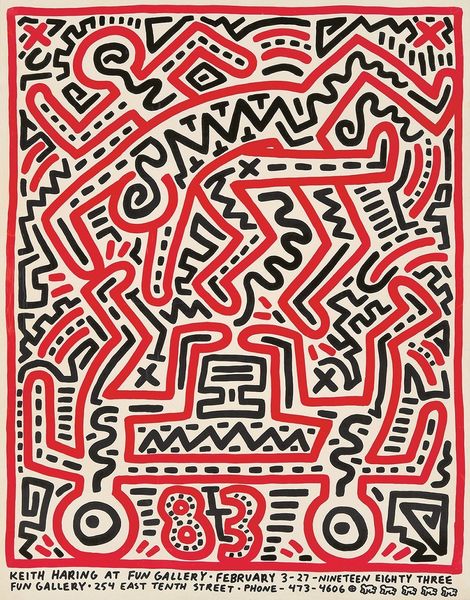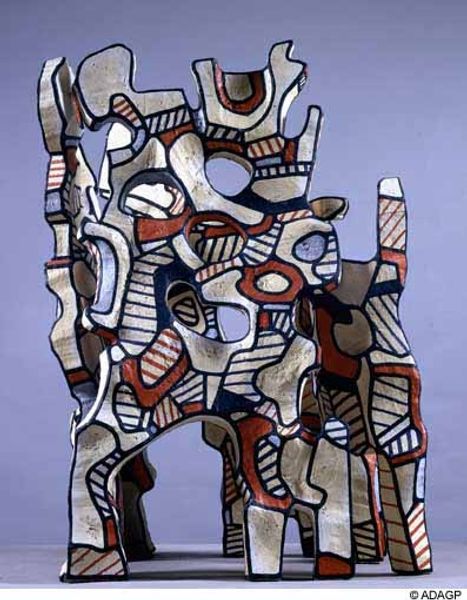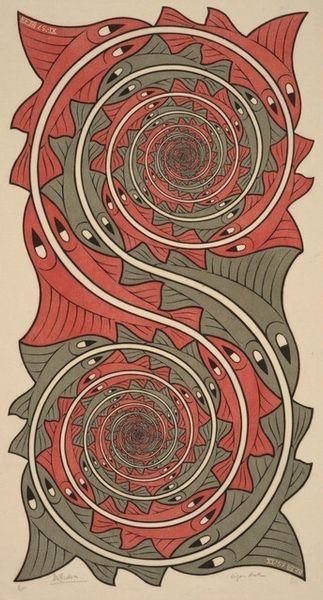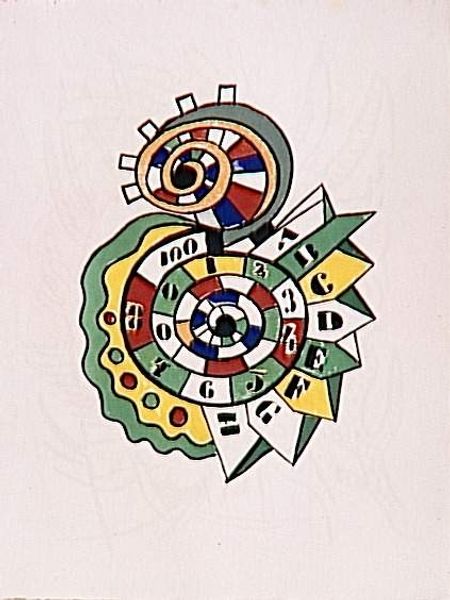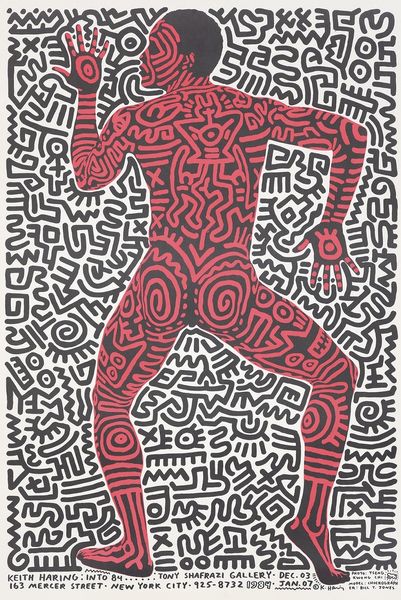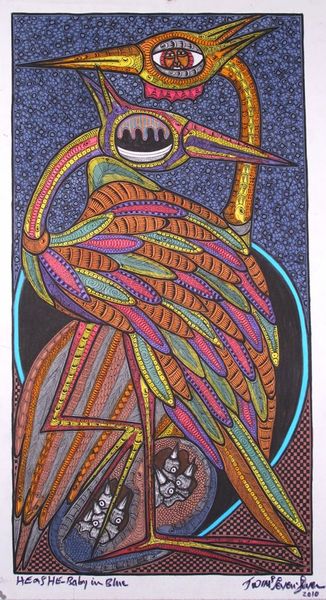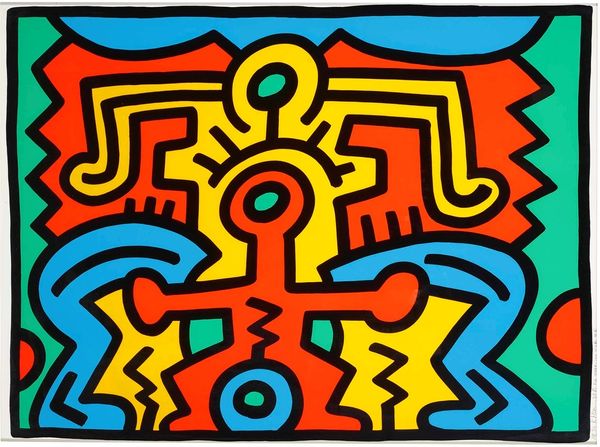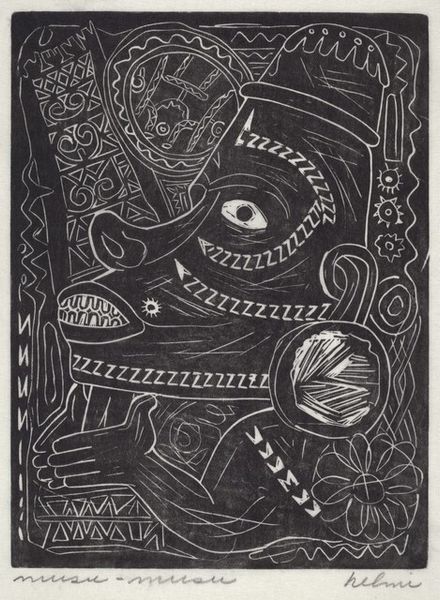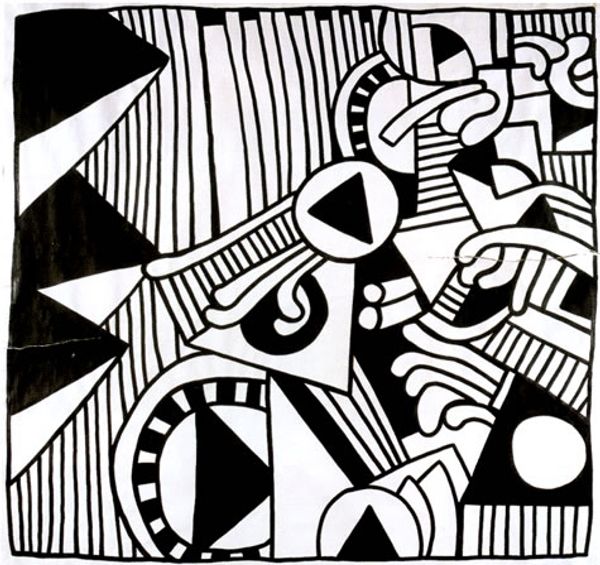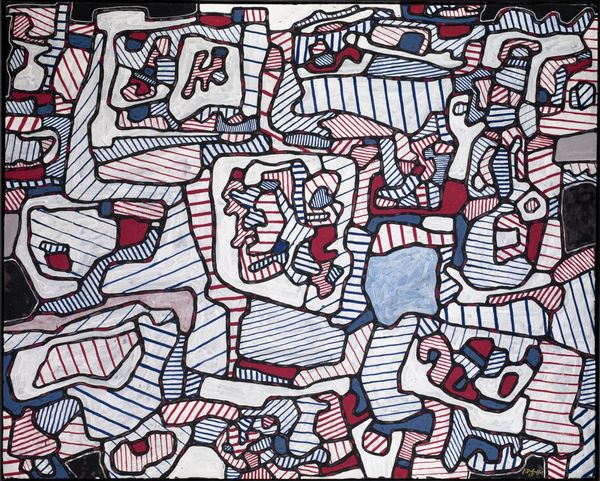
mixed-media
#
portrait
#
abstract-expressionism
#
mixed-media
#
geometric
#
abstraction
#
line
Copyright: Jean Dubuffet,Fair Use
Curator: Welcome. We’re standing before Jean Dubuffet's "Tea VII," a mixed-media work from 1967. Editor: My initial impression is a fractured mind. A whirlwind of thoughts, contained—barely—within the confines of a head. It’s quite jarring, but compelling. Curator: It is that. Dubuffet often incorporated unconventional materials in his work, challenging traditional notions of "fine art." Here, you see a departure from established norms—the very texture, the act of layering, speaks volumes. One can almost imagine the physical labour, the accumulation of matter. Editor: Indeed. I’m struck by the repetition of geometric forms. The lines and blocks suggest a code, or perhaps a disrupted language. There's a primitive quality here. I am curious, does this portrait hold symbolic references? Or does it portray something deeper, something more innate to us as a society? Curator: Well, this was made in 1967. Considering the backdrop of postwar industrialism, Dubuffet's approach feels very much about contesting conventional approaches to artistic expression. The raw, almost crude aesthetic can be viewed as a commentary on the mass production of goods at the time and it's distancing effects from what matters in human existence. Editor: I see that too. But beyond the socio-political context, consider how the simple colours – red, white and blue- echo flags, political slogans. It appears like visual rhetoric stripped of any comforting narrative and transformed into abstraction. The symbolism of control and chaos being one. Curator: That's insightful. In his process, he’s also rejecting the commercial appeal that defined pop art which had mass appeal. By utilizing his approach of the ‘low’ the social commentary becomes inescapable. Editor: Precisely, what we see are the fragmented memories. Tea – the name might suggest domesticity and warmth. Yet this tea is quite abstract in a psychological game, wouldn't you say? Curator: It makes one question art as commodity as a result of its physical rawness. Thank you, this look through the lens of iconology provides new perspectives for me. Editor: The artwork does more than make us contemplate production; it makes us evaluate cultural meaning. I am thankful to share my iconological take with you today.
Comments
No comments
Be the first to comment and join the conversation on the ultimate creative platform.
